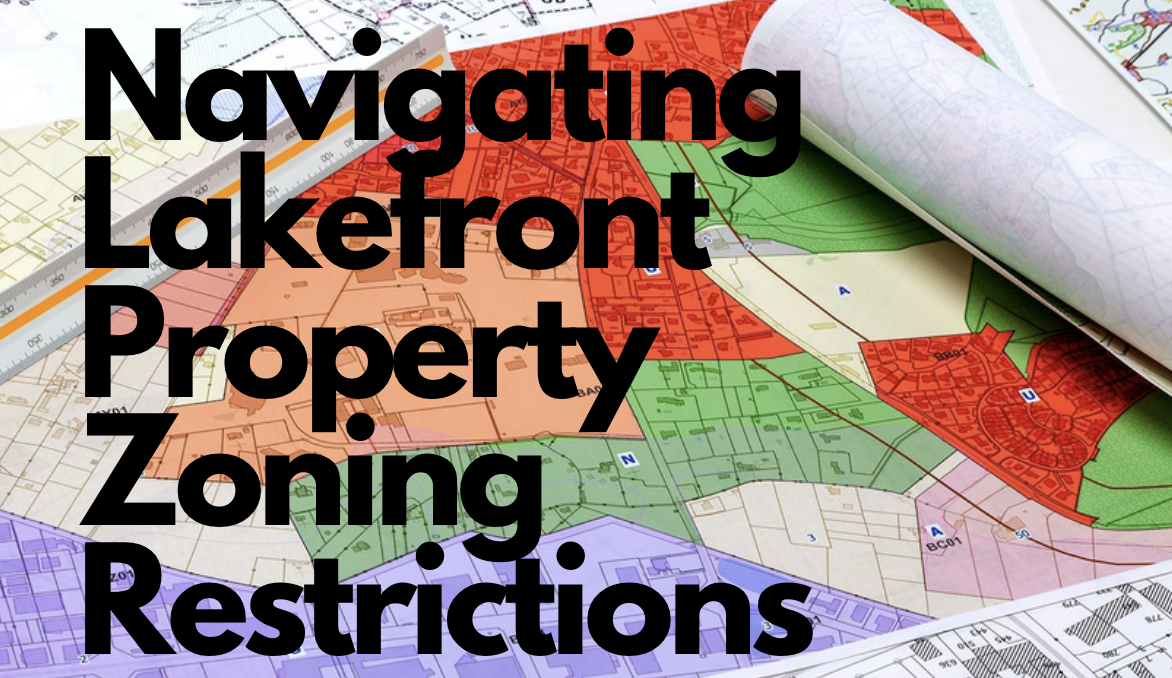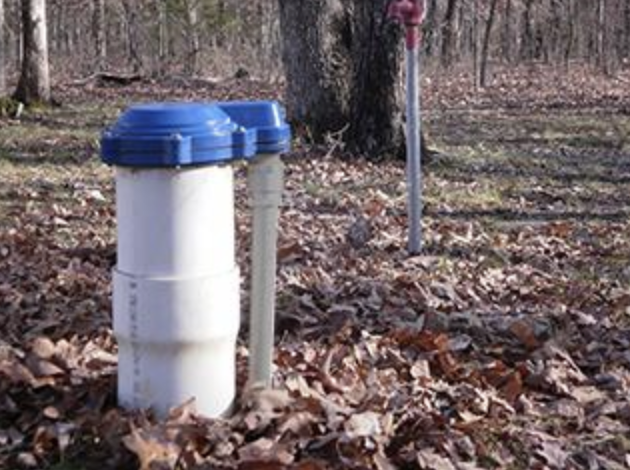
Owning a piece of lakefront property is a dream for many, offering the promise of stunning views and serene living. However, the idyllic appeal of lakefront real estate comes with its own set of zoning restrictions and regulations that are crucial to understand before purchasing or developing such property. In this blog post, we will explore various zoning restrictions that can be placed on lakefront property. We will including setbacks, private water wells, private septic systems, and tear-down restrictions. We will also discuss the valuable role of working with a local lakefront specialty real estate agent.
Setbacks
Setbacks are one of the most common zoning restrictions imposed on lakefront property. These regulations will be defined by how far a building must be situated from the lake’s shoreline, neighboring properties, and roads. Setbacks are designed to protect water quality, preserve the natural beauty of the waterfront, and ensure safety in case of flooding or erosion. A local lakefront specialist real estate agent will have an in-depth understanding of the specific setback regulations for your area. They can help you navigate these rules, ensuring that you find a property that complies with them and can assist in planning any construction or renovation projects in line with these restrictions.
Zoning Restrictions
Zoning restrictions go beyond setbacks and may include rules regarding the size and type of structures that can be built, as well as land use classifications. These restrictions aim to control the density and character of lakefront developments. A lakefront specialist real estate agent is well-versed in the local zoning ordinances that govern lakefront property. They can guide you through these rules and help you understand what type of development is permitted on your chosen property. Their expertise will be invaluable in making informed decisions regarding your real estate investment.
Private Water Wells
Lakefront properties often rely on private water wells for their water supply. The installation and maintenance of private water wells are subject to zoning regulations that aim to safeguard water quality and quantity. Your lakefront specialist agent can provide you with insights into local requirements for private water wells. They can recommend experts for well inspections and water quality testing, ensuring that your property’s water supply is safe and compliant with regulations.

Private Septic Systems
Wastewater management is another critical aspect of lakefront property development. Zoning regulations typically govern the installation and maintenance of private septic systems to prevent pollution of the lake and maintain water quality. A lakefront specialist agent can help you understand the specific septic system regulations in your area. They can guide you on compliance with setback requirements and connect you with professionals who can design, install, and maintain your septic system in accordance with local health department guidelines.
Tear-Down Restrictions
Some lakefront communities implement tear-down restrictions to preserve the character of existing neighborhoods and protect the environment. These rules can limit the demolition and replacement of older structures with larger or more modern buildings. Your lakefront specialist real estate agent can inform you about any tear-down restrictions that may affect your property. They can help you explore options for renovation or new construction while adhering to local guidelines.
Conclusion
Lakefront property ownership comes with its fair share of zoning restrictions, setbacks, and environmental considerations. Understanding and complying with these regulations is essential for preserving the natural beauty of the lakefront. When navigating the complexities of lakefront property zoning, working with a local lakefront specialty real estate agent is an invaluable resource. Their knowledge of the specific regulations in your area can help you make informed decisions, avoid pitfalls, and make the most of your lakefront investment. With their guidance, you can turn your lakefront property into a reality while staying in harmony with zoning requirements.
Posted by Scott Freerksen “The Lake Guy”
